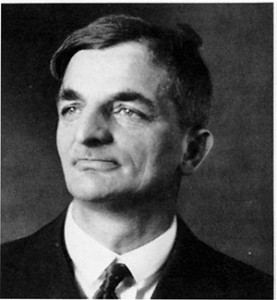 Born in 1883 in Saxony, German poet, writer and artist Joachim Ringelnatz worked variously as a sailor on a World War I mine sweeper and as a comic before landing on the wrong side of the rising Nazi government and finding himself banned from performing.
Born in 1883 in Saxony, German poet, writer and artist Joachim Ringelnatz worked variously as a sailor on a World War I mine sweeper and as a comic before landing on the wrong side of the rising Nazi government and finding himself banned from performing.
He is more widely known in Germany than in the rest of the world where only a few of his comical poems have been translated into other languages. Many of his art works were thought to have been lost in the late 20s and 30s but over 200 have been rediscovered in recent times.
Ringelnatz (real name Hans Bötticher) left school at an early age and went to sea as a cabin boy before becoming a merchant seaman and traveling on various boats and ships across the world. At the age of 20 he returned to Germany with the desire to go into business and took a course at a local college. At the same time he became interested in painting and writing poetry.
In 1909 he performed at various pubs in Munich with his friend Kathi Kobus gaining a reputation as the local poet and was seen in places like the Simplicissimus, a bar where artists and writer hung out. His offerings at this time were often grotesque and humorous and earned him a reputation amongst his peers as a comic poet.
His poems were published in local literary magazines but it was not enough to earn him a living – he worked on and off in a library and even as a guide for tourists.

When World War I started, Ringelnatz went back to sea, writing some war stories that were popular in a number of German magazines. He served on a mine sweeper for a while before the end of the war when he moved to Berlin.
There he became a regular on the cabaret circuit and this period marked his most successful for his writing and performances but also for his developing skill as a painter. His first exhibition took place in Berlin and was successful enough for him to travel abroad and visit centers of art such as Paris.

By the end of the 1920s Ringelnatz was performing his poetry on radio in Berlin and had joined an influential group of artists who were known as the Young Rhineland. Unfortunately, things were beginning to change in Germany by this time as the Nazi party began to start its infamous rise. Ringelnatz lived in Munich for a while until the political situation began to become too volatile, at which point he headed back to Berlin.
There was no hiding place. By the early 1930s, Ringelnatz had been censored and was not allowed to perform on the radio anymore because he was seen as a ‘degenerate’ influence. His books of poetry and novellas were also removed from public libraries. His situation was made even more tenuous because he was suffering from tuberculosis.
Ill and destitute, Ringelnatz died in 1934 at the age of 51.

